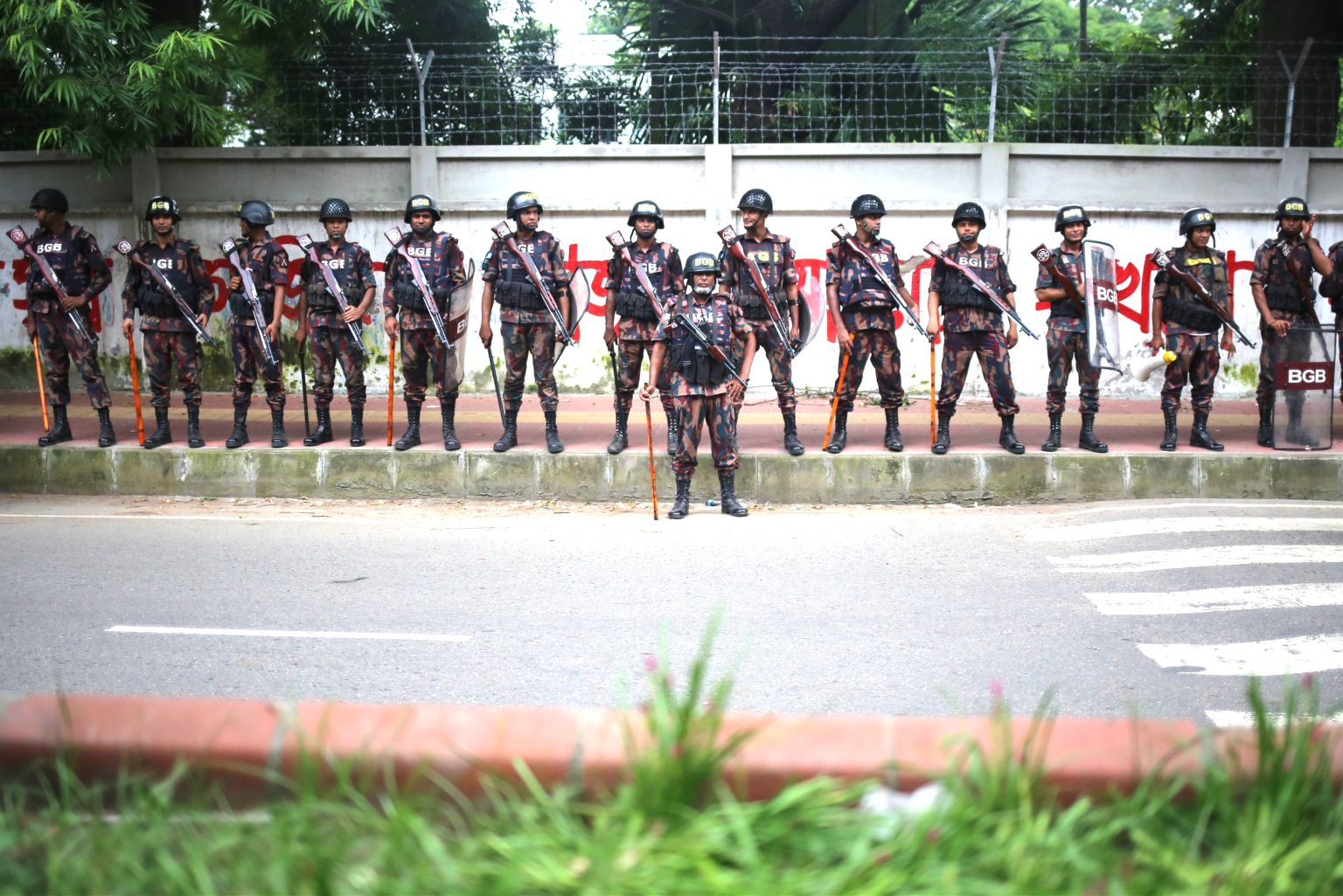As tensions continued to simmer across the country following weeks of nationwide protests led by the Anti-Discrimination Student Movement, the then ruling Awami League’s attempts at reconciliation appeared both delayed and insufficient to defuse public anger.
On the afternoon of July 26, three key coordinators of the movement — Nahid Islam, Asif Mahmud, and Abu Baker Majumdar — were allegedly picked up by plainclothes policemen from Gonoshasthaya Nagar Hospital while undergoing treatment for injuries sustained during the protests.
Hours later, the Detective Branch of police admitted to detaining them, citing “security reasons,” in what critics have described as yet another case of extrajudicial abduction.
Later that evening, former Road Transport Minister and Awami League General Secretary Obaidul Quader addressed the media with a noticeably softened tone. “All the demands of the students have been accepted, and a notification has been issued,” Quader said. “We have always supported the demands of the students.”
He further pledged that all killings connected to the student protests would undergo judicial investigation and trial. However, for many, the assurances rang hollow, coming only after weeks of bloodshed, arbitrary detentions, and a near-total information blackout.
In an unexpected move, then Prime Minister Sheikh Hasina paid a visit to injured protestors at Dhaka Medical College Hospital. Yet, criticism quickly followed when it was revealed that she had first visited the vandalised metro rail infrastructure before seeing the wounded.
“It was a symbolic gesture, but one that showed skewed priorities,” said one protestor who requested anonymity. “It felt like the metro rail mattered more than human lives.”
In a parallel political development, BNP Secretary General Mirza Fakhrul Islam Alamgir renewed his call for a national movement to force the government’s resignation. “The country cannot move forward under this regime,” he declared, urging all opposition forces to unite around BNP’s one-point demand.
The situation on the ground remained tense. While curfew restrictions were eased in parts of Rangpur Division, July 26 also marked the highest number of mass arrests in a single day during the uprising. Security forces, including BGB, army, and police, continued their heavy presence on the streets across major cities.
The ongoing internet blackout, now in its fifth day, has severely impacted remittance transfers through banking channels and mobile financial services (MFS). Economists have warned of lasting damage to the informal economy if digital services remain disrupted.
As the country grapples with the fallout of a historic movement, many observers believe that the government’s delayed conciliatory gestures have failed to repair the trust broken during the crackdown. The promise of judicial inquiries and policy adjustments may no longer be enough to satisfy a youth-led movement that has already paid too high a price.


